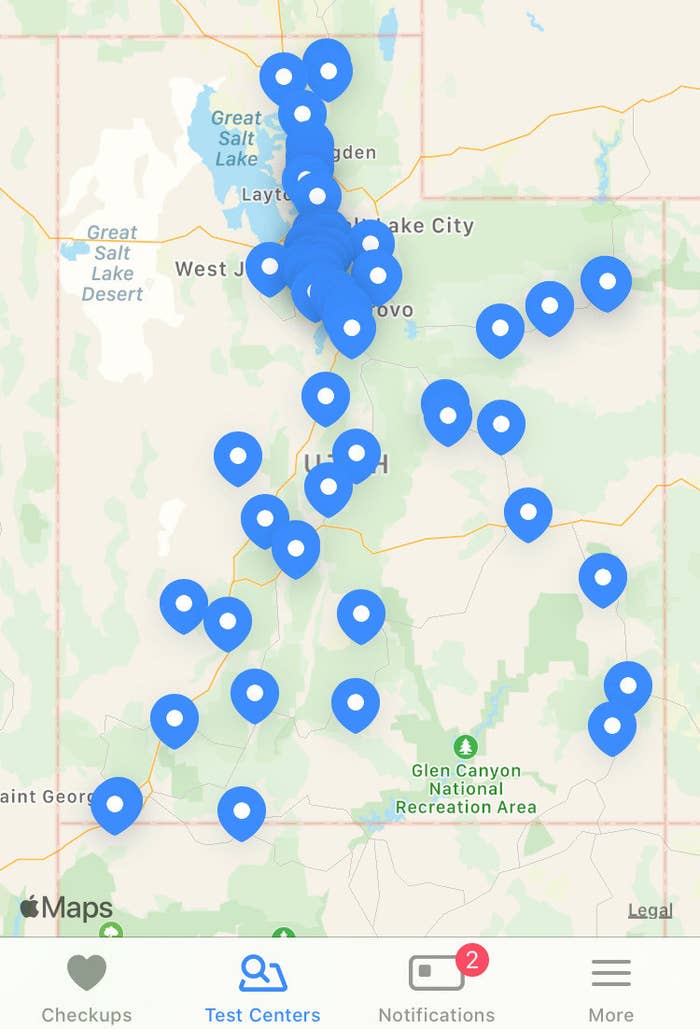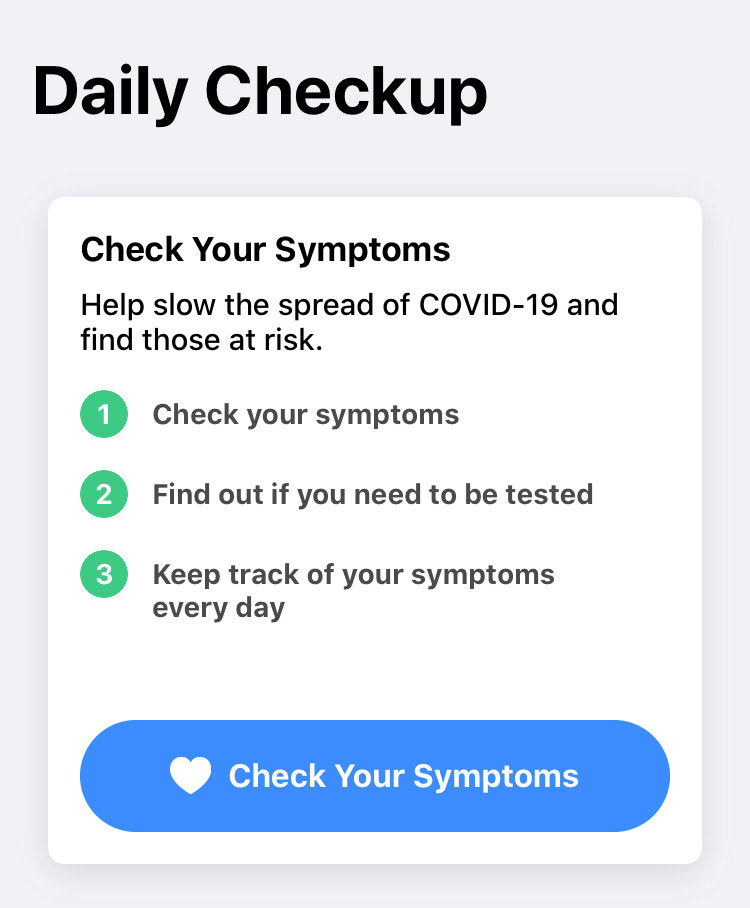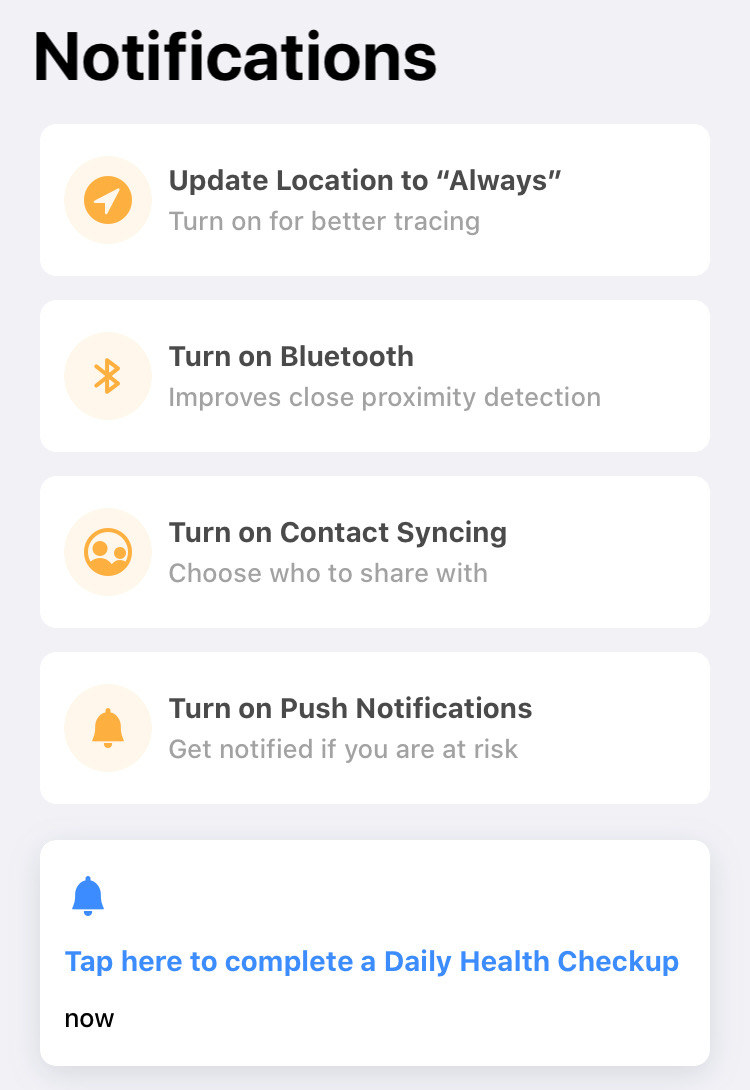Utah’s Contact Tracing App Was Supposed To Help The State Open Up. It Isn’t Going Very Well.
When Utah became one of the first states to begin a phased reopening on May 1, the return of restaurants, some businesses, and churches was supposed to be supported by a mobile app that would help public health officials track down people infected with COVID-19 and anyone with whom they may have been in contact.
Utah Gov. Gary Herbert said on April 22 that the app, Healthy Together, would be an integral part of getting the state back on its feet: "This app will give public health workers information they need to understand and contain the pandemic and help Utahns get back to daily life.”
The state spent $2.75 million to purchase the app and is paying a monthly maintenance fee of $300,000, according to contracts obtained by BuzzFeed News. But as of May 18, just 45,000 of the state's 3.2 million people had downloaded Healthy Together, according to Twenty.
Now, state lawmakers are raising concerns about the cost, public health officials worry about its relevance, and Spanish speakers and members of the Navajo Nation say that it has drawn resources and attention away from more pressing needs. In its rush to solve a public health crisis with a technological quick fix, Utah may be no better off than it was without the app.

Healthy Together
With widespread use, Utah officials argued, Healthy Together could help save lives and reopen businesses in a state where the unemployment rate for the year is expected to reach 8.6%.
As previously reported, the company that built the tracing app, Twenty, has created only one other program. The app, which is called Twenty - Hang With Friends, is similar to Snapchat Map, and shows where a person's friends are and lets them chat with each other.
Although Twenty, whose CEO is Diesel Peltz, had never built a healthcare app, according to its proposal, the company would build two items: a contact tracing app for Utah residents and a tracking portal for state officials and healthcare workers to monitor the data. On April 23, Utah's Division of Purchasing and General Services approved the proposal, in which Twenty promised that within 10 days of launch, the public health portal would be available, along with location-tracking features, which is necessary for the digital contact tracing tool Twenty promised.
On Tuesday, a Twenty spokesperson told BuzzFeed News that the company could not comment on when these features would become available, although they said those elements were still coming.
“In the days ahead, a full-scale version of Healthy Together will roll out additional planned features that include a public health portal to assist manual contact tracing teams, as well as a Maps function to allow users to determine high-, medium-, and low-risk areas in their community,” the spokesperson said. “Our team remains committed to transparency in our approach, and will continue to work with Utah’s leadership to provide tools to aid their efforts to fight the pandemic.”
Utah’s contract with Healthy Together isn't the state's only recent technology controversy. Before the pandemic, the state signed a five-year, $20.7 million contract with a surveillance company that claimed to be able to identify crime in real time. In April, news outlet OneZero revealed that in 1990 Banjo CEO Damien Patton had taken part in a drive-by shooting of a synagogue with a member of the Ku Klux Klan, after which he stepped down and the Utah attorney general suspended the contract.
As of today, Twenty hasn’t delivered. Nearly four weeks after launching, the only features currently available are the symptom checker and the testing center map. A dashboard that was supposed to be usable 10 days after the app launched is not yet available, according to Amelia Prebish, a health program coordinator for the Utah Department of Health.
That's led to concerns among lawmakers over the cost and the procurement process, which went outside of normal channels. According to the Salt Lake Tribune, the state has allocated $84 million in no-bid contracts and supply orders outside its usual purchasing process.
“In Utah, when there’s a declared emergency, the executive branch has wide powers to suspend our normal procurement process,” Utah state Rep. Andrew Stoddard told BuzzFeed News. He's introduced a bill that would rein in the executive branch’s powers to make purchases during an emergency.
State Rep. Suzanne Harrison told BuzzFeed News she was "concerned that perhaps, this will be something that profits the few at taxpayer expense.”
“I’m also a practicing medical doctor myself and I want to make sure that as we tackle this pandemic, both from the health and pandemic standpoint, that we are listening to public health and medical experts to do this in the most effective way,” Harrison said. “Is this the best use of taxpayer money, in this situation?”
Many healthcare workers said it was not.
People working in testing clinics told BuzzFeed News that they haven’t told people about Healthy Together when they come in for COVID-19 testing nor have authorities asked them to promote it.
Kathy Wilets, a spokesperson for the University of Utah, which operates five COVID-19 testing clinics, said the university was not referring patients to Healthy Together.
A representative from the Ashley Regional Medical Center said its workers were not referring people to the app, in part over "privacy reasons."

Healthy Together
One worker, who asked to remain anonymous, told BuzzFeed News that the app was probably not being used by those most vulnerable to infections. “I think it’s Gov. Herbert’s way of saying, ‘Hey, we’re doing something,’” the worker said. “The app is nice, but it’s not reaching all the target populations that are out there.”
And, in what they worry is a rush to find a technical solution to the public health crisis, some community organizers fear the state is overlooking people of color.
"We haven’t even been able to receive the adequate testing that we need to begin with,” said Maria Montes, an organizer for the Latinx advocacy group Comunidades Unidas.
Montes said Utah doesn’t have permanent testing sites in some low-income communities, like the Glendale neighborhood of Salt Lake City, leaving people to rely on mobile testing buses from the University of Utah.
“We’ve heard different people say that the pandemic is a great equalizer,” Montes said. “While we’re all in the same water, we’re not in the same boat. It would be incredibly unfair to push everyone to move forward when there’s not an equal amount of resources going around.”
Kurt Micka, executive director of Utah Partners for Health, told BuzzFeed News that 60% of his clinic's patients speak Spanish. Although the app is available in Spanish, he said that in-person outreach was probably a more effective way to fight the disease.
“I personally downloaded the app — I don’t know really how applicable it is,” he said. “It’s a nice app for people who like apps.”
Meanwhile, the Navajo Nation, which includes 15,000 people living in Utah, is facing one of the more severe outbreaks of COVID-19 in the United States. As of May 17, 140 members of that community have died across the territory — which spans across parts of Utah, Arizona, and New Mexico — according to Navajo Nation President Jonathan Nez.
In response, the Navajo Nation has unrolled aggressive testing. There are 17 clinics testing for COVID-19 on Navajo territory, and to date, 11.6% of the Navajo population has been tested for COVID-19, according to Nez. That’s higher than the most-tested state in the nation, New York, which has a rate of 7.1%.
But none of the 17 Navajo testing clinics are on Healthy Together.

Healthy Together
A spokesperson for the Utah Department of Health declined to comment on the absence of Navajo Nation testing centers in the state's contact tracing app and did not share its criteria for testing center inclusion. The spokesperson noted that the department’s mobile testing centers had been sent to Navajo Nation territory.
Nez told BuzzFeed News that the Healthy Together app hasn’t come up in discussions with Utah officials. He said that while the Navajo Nation is open to using contact tracing technology, there would have to be strong data protections regarding biomedical data.
“We tell the states and the countries that we are in charge,” Nez said. "And we appreciate their support, but we do want our data being protected, because we don’t want it being used for anything else.”
Utah’s Contact Tracing App Was Supposed To Help The State Open Up. It Isn’t Going Very Well.
![Utah’s Contact Tracing App Was Supposed To Help The State Open Up. It Isn’t Going Very Well.]() Reviewed by Your Destination
on
May 21, 2020
Rating:
Reviewed by Your Destination
on
May 21, 2020
Rating:

No comments